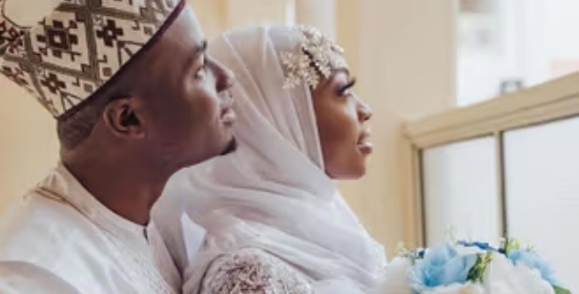Converting to your partner’s religion is a deeply personal decision with significant implications for your personal life, relationship, and family dynamics. Here are key considerations and strategies for navigating religious differences if conversion isn’t possible.
Possible Scenarios Leading to Conversion
1. Desire for Unity: Couples may seek religious unity to simplify family life, especially when planning marriage and raising children. Sharing a common faith can ensure consistent values and practices within the family.
2. Family Expectations: Cultural expectations may pressure one partner to convert to maintain family traditions and harmony. This pressure can come from parents, extended family, or the broader community.
3. Personal Spiritual Exploration: An individual might feel genuinely drawn to their partner’s religion, finding personal spiritual fulfillment and a sense of belonging in the new faith.
Key Considerations
1. Personal Beliefs and Convictions**
– Reflect on Your Beliefs: Ensure that the tenets of your partner’s religion resonate with your personal beliefs. Conversion should stem from genuine belief, not just relational harmony.
– Spiritual Fulfillment: Evaluate if the new religion will provide you with spiritual comfort and fulfillment. Attend services, speak with religious leaders, and read religious texts to understand the faith deeply.
2. Impact on Relationship Dynamics
– Open Communication: Discuss your thoughts, fears, and expectations openly with your partner. Honest conversations about religious beliefs and practices are crucial.
– Respect and Understanding: Ensure mutual respect for each other’s spiritual journeys. Understand that differing beliefs can coexist harmoniously if approached with empathy and respect.
3. Family and Social Implications
– Family Reactions: Anticipate potential reactions from both families. Plan how to address concerns and conflicts that may arise from your decision to convert or not.
– Social Support: Consider the support system within your current religious community versus the new one. Will you have the same level of support and community involvement?
4. Long-term Commitment
– Religious Practices: Understand the level of commitment required, including religious services, holidays, and rituals. Ensure you are comfortable with these practices in the long term.
– *Children’s Upbringing: Discuss and agree on how you will raise your children, considering the values and practices of both religions.
Navigating Religious Differences and Disagreements
If conversion is not feasible or desirable, it’s essential to navigate religious differences with care. Here are some strategies:
1. Mutual Respect and Acceptance
– Respect Beliefs: Accept and respect your partner’s beliefs, recognizing that it’s possible to have a loving relationship without sharing the same faith.
– Avoid Criticism: Avoid criticizing each other’s religious practices. Focus on understanding and appreciating your differences.
2. Open Communication
– Set Boundaries: Establish clear boundaries regarding religious discussions and practices. Agree on how to handle religious holidays and ceremonies.
– Share Experiences: Occasionally attend each other’s religious events to foster understanding and empathy.
3. Find Common Ground
– Shared Values: Identify shared values and principles that transcend religious differences. Focus on these commonalities to strengthen your relationship.
– Create New Traditions: Develop new family traditions that incorporate elements from both religions, promoting inclusivity and unity.
4. Seek Guidance
– Professional Counseling: Consider seeking advice from a religious counselor or a relationship therapist. They can offer unbiased perspectives and help navigate religious differences.
– Community Support: Engage with interfaith communities or support groups to share experiences and gain insights from others in similar situations.
Conclusion
Converting to your partner’s religion is a significant decision that requires careful consideration of personal beliefs, relationship dynamics, and family implications. If conversion isn’t possible, navigating religious differences with mutual respect, open communication, and shared values can maintain harmony and strengthen your relationship. Ultimately, the foundation of a successful relationship lies in love, respect, and understanding, regardless of religious affiliation.





